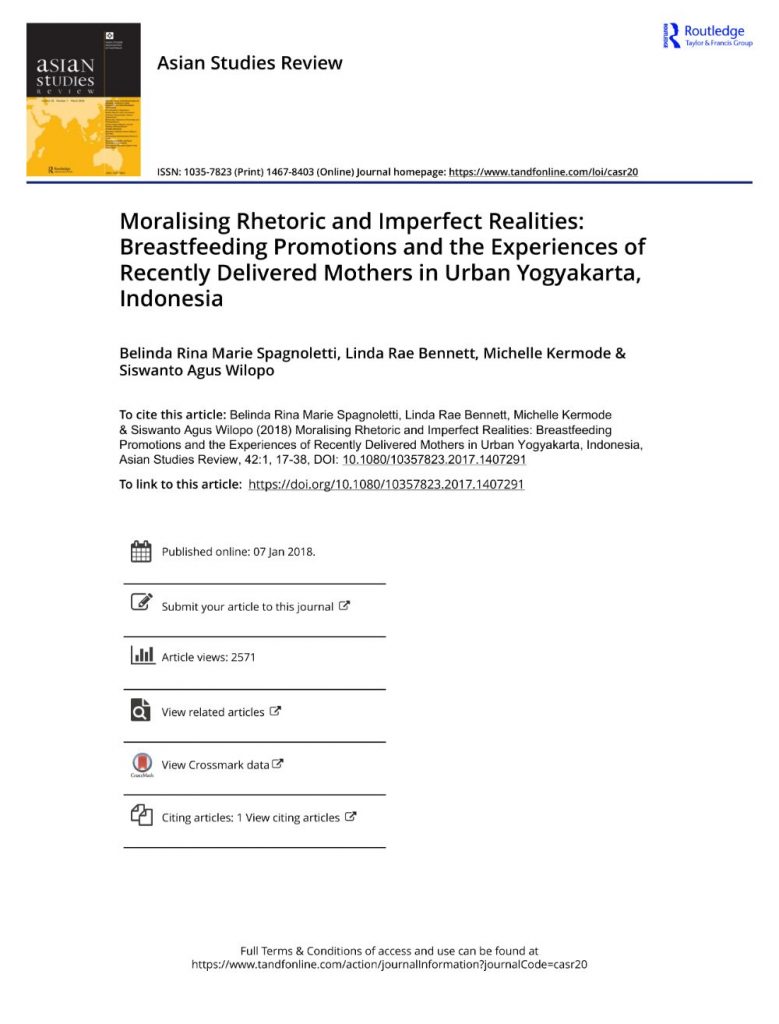
Belinda Rina Marie Spagnoletti, Linda Rae Bennett, Michelle Kermode, Siswanto Agus Wilopo
Moralising rhetoric and imperfect realities: breastfeeding promotions and the experiences of recently delivered mothers in urban Yogyakarta, Indonesia
- JURNAL
Exclusive breastfeeding is embedded in National Health Law and Regulation in Indonesia and is vigorously promoted by health workers, breastfeeding counsellors and religious leaders. This article explores the transformation of state legislation into breastfeeding promotions that are imbued with moralising assumptions directed at expectant women, new mothers and their partners. Drawing on an 18-month ethnographic study, the rhetoric of breastfeeding promotion messages is contrasted with the narratives of urban middle-class mothers in Yogyakarta. This article highlights the challenges women experience in their attempts to breastfeed and the divergence between the moralising rhetoric of breastfeeding promotions and women’s imperfect lived realities. It demonstrates how dominant health promotion messages construct breastfeeding as a moral issue, insist women are obligated to breastfeed their infants, and fail to acknowledge women’s choice, reproductive agency and bodily autonomy. Such messaging assumes the right of infants to be breastfed, and emphasises the developmental problems likely to befall children who are not breastfed. Gendered expectations that all mothers will assume their breastfeeding role selflessly and dutifully are also embedded in breastfeeding promotion messages. We conclude that breastfeeding promotion messages need to be more inclusive and less moralising in their substance and delivery to better serve Indonesian women. Women are likely to feel more supported and less alienated by breastfeeding promotion messages that recognise the possibility of common breastfeeding challenges, such as difficulty establishing successful breastfeeding, the baby blues, the likelihood of suffering discomfort from breastfeeding in public, and issues with the premature cessation of breastfeeding.

